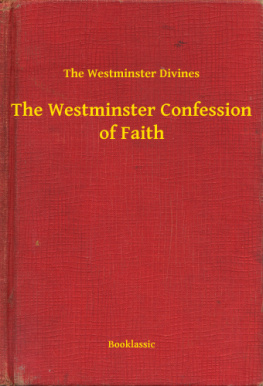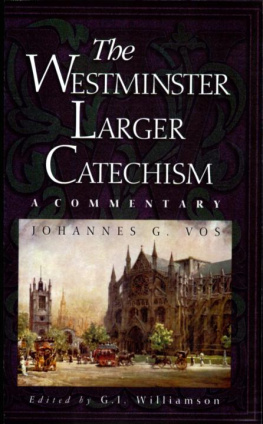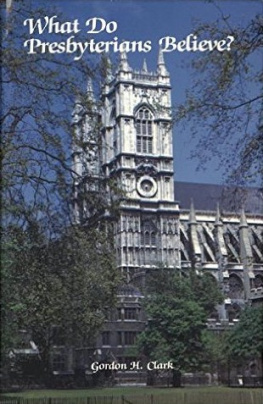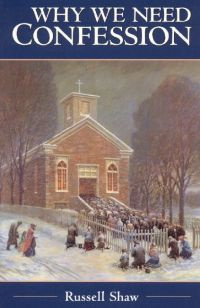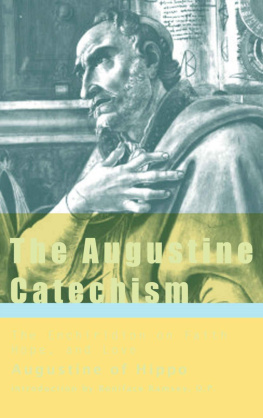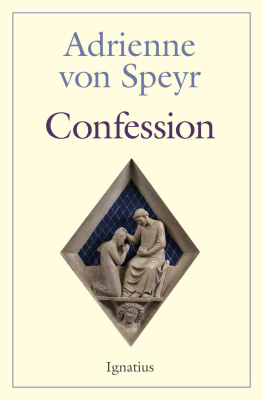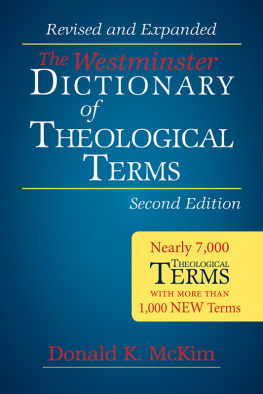Chapter Ofthe holy Scripture
I. Although the light of nature, and the works of creation andprovidence, do so far manifest the goodness, wisdom, and power ofGod, as to leave men inexcusable; yet are they not sufficient togive that knowledge of God, and of his will, which is necessaryunto salvation; therefore it pleased the Lord, at sundry times, andin divers manners, to reveal himself, and to declare that his willunto his Church; and afterwards for the better preserving andpropagating of the truth, and for the more sure establishment andcomfort of the Church against the corruption of the flesh, and themalice of Satan and of the world, to commit the same wholly untowriting; which maketh the holy Scripture to be most necessary;those former ways of God's revealing his will unto his people beingnow ceased.
II. Under the name of holy Scripture, or the Word of Godwritten, are now contained all the Books of the Old and NewTestament, which are these:
<
tbody>
Of the Old Testament |
Genesis | Ecclesiastes |
Exodus | The Song of Songs |
Leviticus | Isaiah |
Numbers | Jeremiah |
Deuteronomy | Lamentations |
Joshua | Ezekiel |
Judges | Daniel |
Ruth | Hosea |
I Samuel | Joel |
II Samuel | Amos |
I Kings | Obadiah |
II Kings | Jonah |
I Chronicles | Micah |
II Chronicles | Nahum |
Ezra | Habakkuk |
Nehemiah | Zephaniah |
Esther | Haggai |
Job | Zechariah |
Psalms | Malachi |
Proverbs |
Of the New Testament |
The Gospels according to | Thessalonians II |
Matthew | Timothy I |
Mark | Timothy II |
Luke | Titus |
John | Philemon |
The Acts of the Apostles | The Epistle to the |
Paul's Epistles to the Romans | Hebrews |
Corinthians I | The Epistle of James |
Corinthians II | The First and Second |
Galatians | Epistles of Peter |
Ephesians | The First, Second, and |
Philippians | Third Epistles of John |
Colossians | The Epistle of Jude |
Thessalonians I | The Revelation |
All which are given by inspiration of God, to be the rule offaith and life.
III. The books commonly called Apocrypha, not being of divineinspiration, are no part of the Canon of Scripture; and thereforeare of no authority in the Church of God, nor to be any otherwiseapproved, or made use of, than other human writings.
IV. The authority of the holy Scripture, for which it ought tobe believed and obeyed, dependeth not upon the testimony of any manor Church, but wholly upon God (who is truth itself), the Authorthereof; and therefore it is to be received, because it is the Wordof God.
V. We may be moved and induced by the testimony of the Church toan high and reverent esteem of the holy Scripture; and theheavenliness of the matter, the efficacy of the doctrine, themajesty of the style, the consent of all the parts, the scope ofthe whole (which is to give all glory to God), the full discoveryit makes of the only way of man's salvation, the many otherincomparable excellencies, and the entire perfection thereof, arearguments whereby it doth abundantly evidence itself to be the Wordof God; yet, notwithstanding, our full persuasion and assurance ofthe infallible truth and divine authority thereof, is from theinward work of the Holy Spirit, bearing witness by and with theWord in our hearts.
VI. The whole counsel of God, concerning all things necessaryfor his own glory, man's salvation, faith, and life, is eitherexpressly set down in Scripture, or by good and necessaryconsequence may be deduced from Scripture: unto which nothing atany time is to be added, whether by new revelations of the Spirit,or traditions of men. Nevertheless we acknowledge the inwardillumination of the Spirit of God to be necessary for the savingunderstanding of such things as are revealed in the Word; and thatthere are some circumstances concerning the worship of God, and thegovernment of the Church, common to human actions and societies,which are to be ordered by the light of nature and Christianprudence, according to the general rules of the Word, which arealways to be observed.
VII. All things in Scripture are not alike plain in themselves,nor alike clear unto all; yet those things which are necessary tobe known, believed, and observed, for salvation, are so clearlypropounded and opened in some place of Scripture or other, that notonly the learned, but the unlearned, in a due use of the ordinarymeans, may attain unto a sufficient understanding of them.
VIII. The Old Testament in Hebrew (which was the native languageof the people of God of old), and the New Testament in Greek (whichat the time of the writing of it was most generally known to thenations), being immediately inspired by God, and by his singularcare and providence kept pure in all ages, are thereforeauthentical; so as in all controversies of religion the Church isfinally to appeal unto them. But because these original tongues arenot known to all the people of God who have right unto, andinterest in, the Scriptures, and are commanded, in the fear of God,to read and search them, therefore they are to be translated intothe vulgar language of every nation unto which they come, that theWord of God dwelling plentifully in all, they may worship him in anacceptable manner, and, through patience and comfort of theScriptures, may have hope.
IX. The infallible rule of interpretation of Scripture, is theScripture itself; and therefore, when there is a question about thetrue and full sense of any scripture (which is not manifold, butone), it may be searched and known by other places that speak moreclearly.
X. The Supreme Judge, by which all controversies of religion areto be determined, and all decrees of councils, opinions of ancientwriters, doctrines of men, and private spirits, are to be examined,and in whose sentence we are to rest, can be no other but the HolySpirit speaking in the Scripture.
Chapter OfGod, and of the Holy Trinity
I. There is but one only living and true God, who is infinite inbeing and perfection, a most pure spirit, invisible, without body,parts, or passions, immutable, immense, eternal, incomprehensible,almighty, most wise, most holy, most free, most absolute, workingall things according to the counsel of his own immutable and mostrighteous will, for his own glory, most loving, gracious, merciful,long-suffering, abundant in goodness and truth, forgiving iniquity,transgression, and sin; the rewarder of them that diligently seekhim; and withal most just and terrible in his judgments; hating allsin; and who will by no means clear the guilty.

